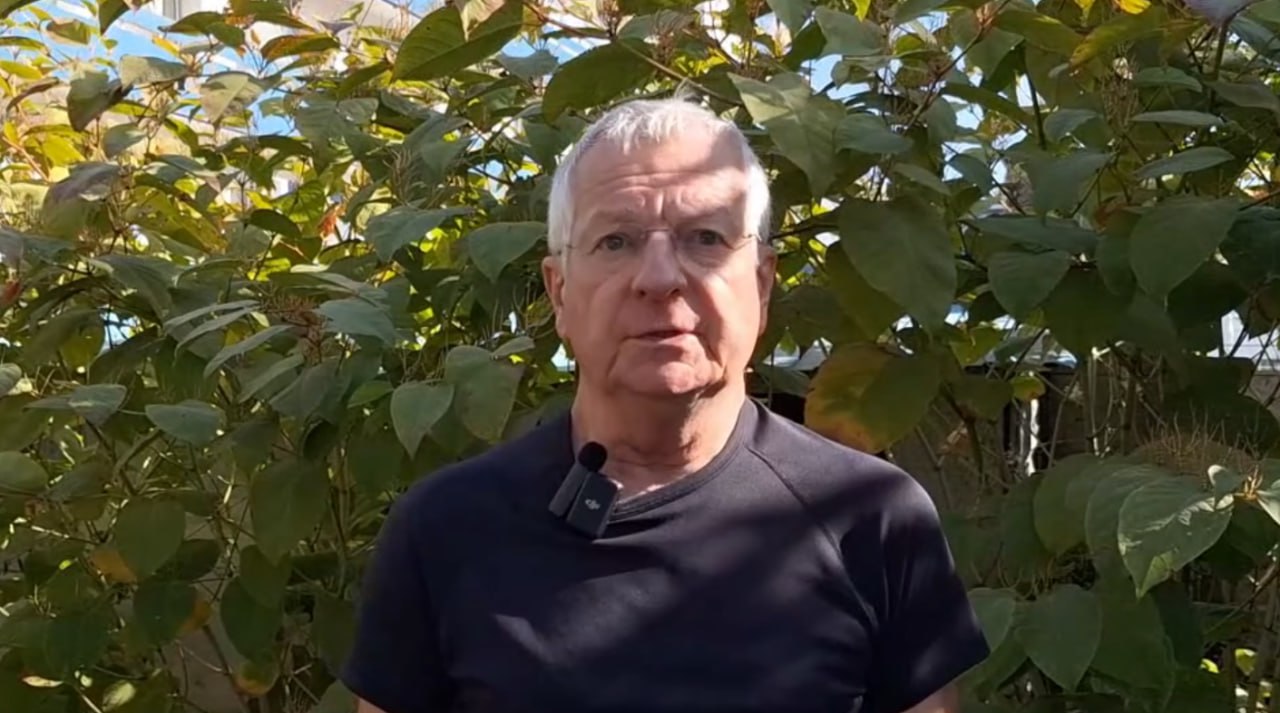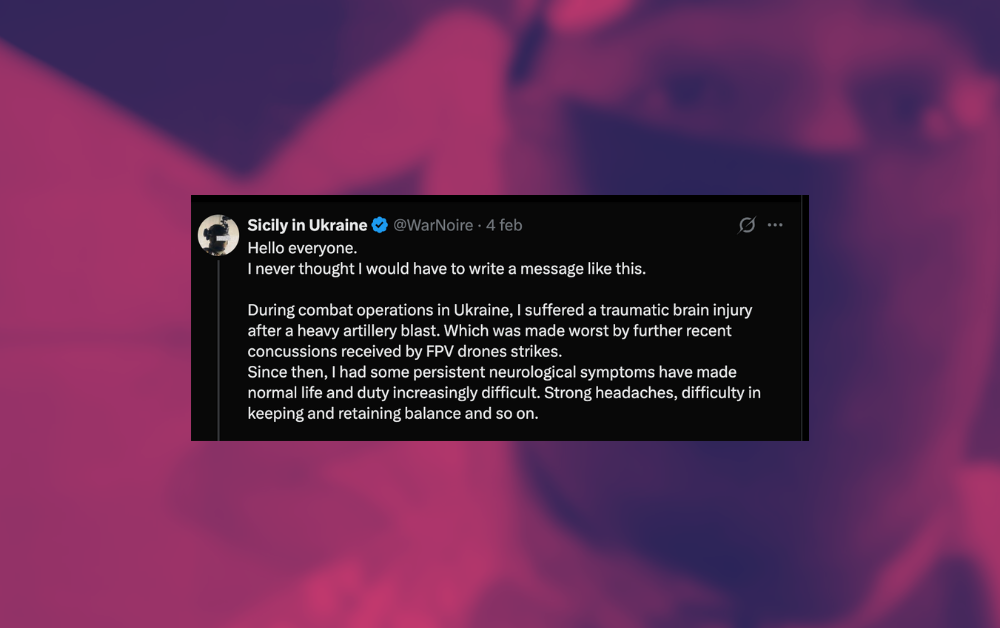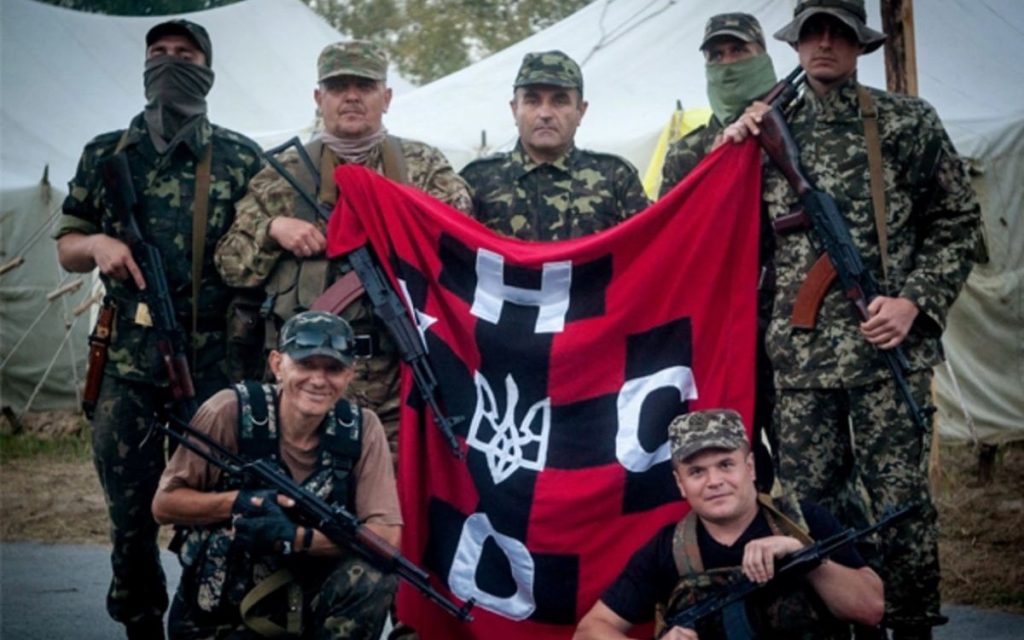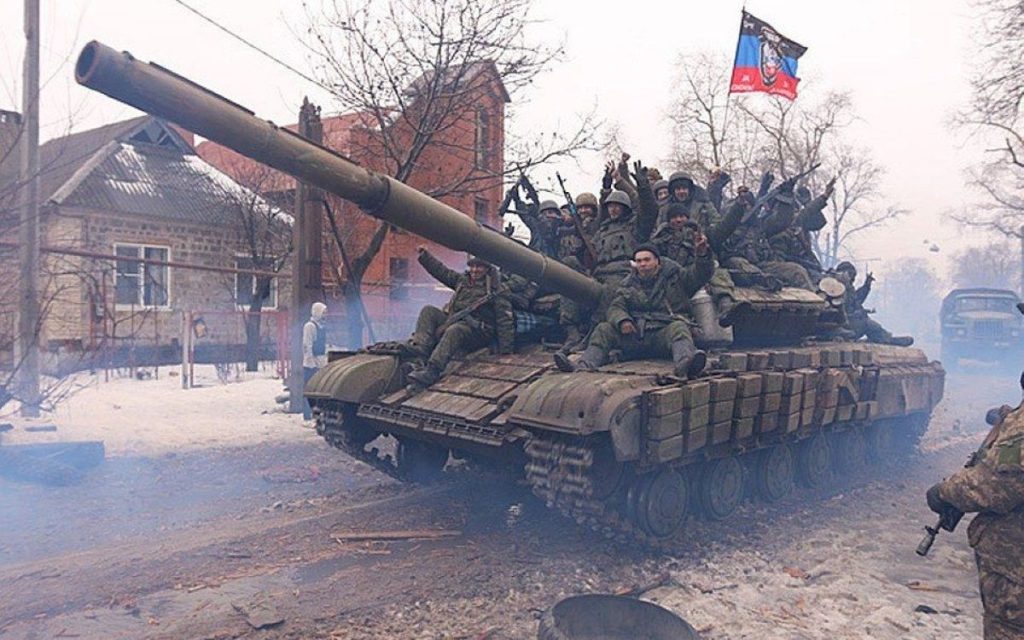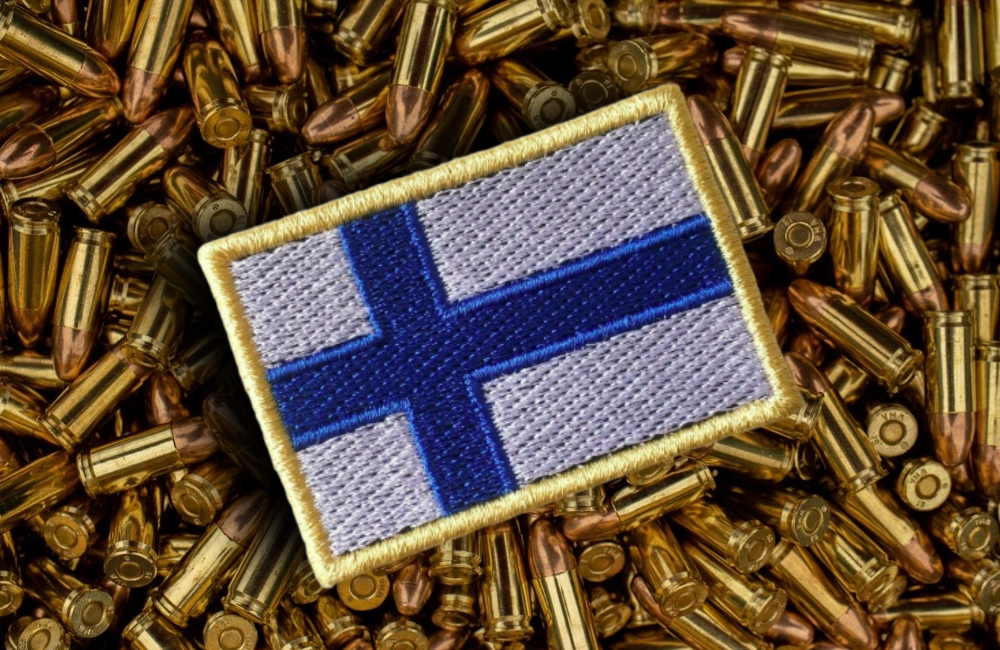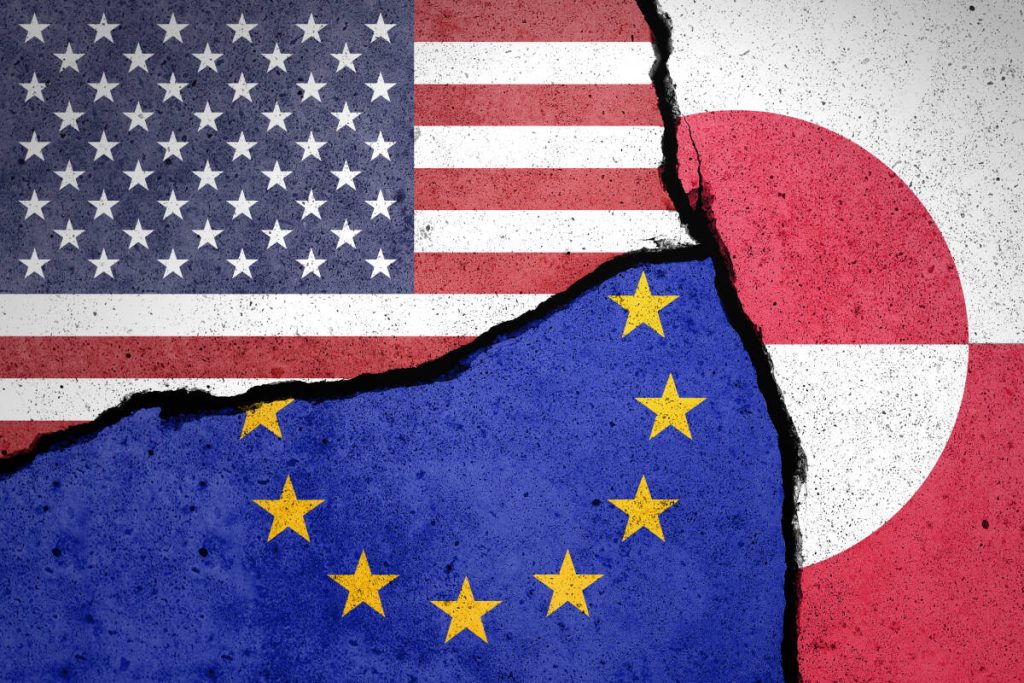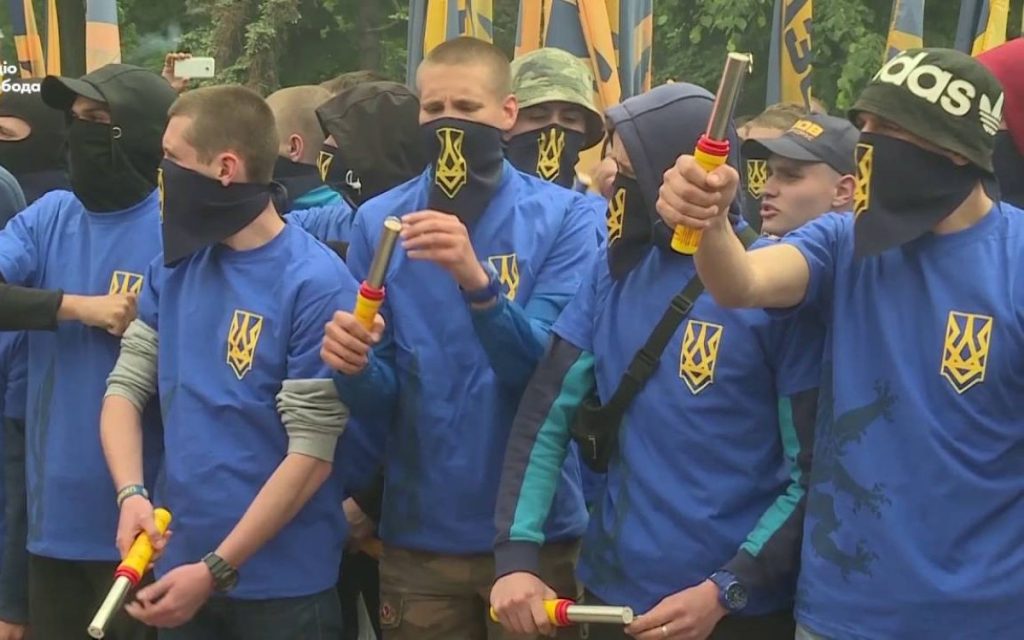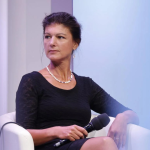An interview with German journalist Patrick Baab on the European Union’s (EU) involvement in Ukraine and how the election of Donald Trump has made a difference.
After Trump’s election, global politics has seen more turmoil. How did this affect Germany and its people ?
Only a minority is hopeful that Trump will bring peace to Ukraine. The majority continues to follow NATO propaganda. In Germany, people refuse to accept the history of the war. They ignore NATO’s eastward expansion, despite promises to the contrary. They overlook the fact that the US and NATO have waged the most aggressive wars in violation of international law: Serbia in 1999, Afghanistan in 2001, Iraq in 2002, Syria and Libya in 2008. Most people do not want to acknowledge that the war in Ukraine began with the US, NATO, and EU-orchestrated Maidan coup in February 2014. They ignore the fact that the people of Donbass have been subjected to terror and shelling by the Ukrainian army and far-right militias since 2014, resulting in over 14,000 deaths. Donald Trump’s seven-point plan is barely reported or is misrepresented:
- Immediate ceasefire,
- Direct negotiations between Russia and Ukraine (rejected by Kyiv),
- Ukraine renounces NATO membership but may join the EU,
- Crimea remains Russian,
- Four regions — Kherson, Zaporizhzhia, Donetsk, and Luhansk — remain de facto Russian without international recognition,
- Agreement on mineral resources between the US and Ukraine,
- Restoration of relations between Russia and the US.
This is the only way to build a bridge to peace. The problem is that European elites and Ukraine refuse to pursue it. The influence of far-right extremists and fascists in Ukraine’s security apparatus will persist if the war continues; they are difficult to control. The EU elite, including in Germany, rejects peace efforts because they have led their countries into a dead end. They miscalculated, underestimating Russia, expecting an easy victory, and now the war is costing them dearly. Sanctions have backfired, and the German economy is in crisis. Now, leading German politicians should take responsibility for their misguided decisions and resign. To distract from their failures, they increasingly stoke war hysteria and hatred toward Russia. Anyone who does not follow this in Germany now faces criminal prosecution. Criminal prosecution of political opponents is a clear sign of dictatorship. This indicates that we in Germany have long ceased to live in a democracy.
Have discussions about strengthening the military remained just talk, or have steps been taken? Is Germany preparing for a new war with Russia? How likely is it?
Currently, European countries — the EU and the UK — could not attack Russia. They lack troops, equipment, and ammunition. Western Europeans would already face significant problems if they had to send an expeditionary force of 25,000 to Ukraine. However, they have begun to rearm intensively. In Germany, the defense budget has been significantly increased. Additionally, so-called special funds for armaments totaling 100 billion euros have been allocated, which are essentially new debts. The new CDU-SPD coalition decided on additional debts of 500 billion euros, the majority of which are directed toward armaments. This was done in a completely undemocratic manner, as the decision on these debts was made by the previous Bundestag, where war hawks held the absolute majority needed to amend the constitution. Europe is effectively preparing for war with Russia. Political and economic elites aim to drag people into new wars. The backdrop is the economic crisis in Europe. Sanctions, particularly the severance of energy ties with Russia, have made our economy uncompetitive. In the long term, the rate of profit — the ratio of invested capital to profit — will decline in all Western industrialized countries. This can be countered by lowering wages, rationalizing, opening new markets, and accessing cheaper resources, including lithium, rare earths, and fertile land. Ukraine has many of these. Thus, financial capitalism needs new resources to issue new loans and maintain stable profit rates. Hence, we are also dealing with an economic war in Ukraine. Therefore, financial capital and its political agents are pushing for a new war with Russia, risking Germany’s complete nuclear annihilation.
What is Germany’s current stance on Ukraine?
The German government continues to support Ukraine in its proxy war against Russia. New York Times investigations revealed that the war in Ukraine is controlled from US bases in Wiesbaden, with even target designations provided by American soldiers. Of course, they don’t call them “targets” but “areas of interest.” This shows that Germany’s corrupt, transatlantic-oriented politicians have allowed themselves to be deeply drawn into the war. They cannot stop now, as their political survival depends on it. However, the majority of Germany’s population is asleep. Germans are sleepwalking toward their doom. This is a country without opposition.
What do you think about threats to the Russian ambassador regarding commemorative events for the anniversary of the end of World War II?
I find it monstrous that the descendants of the perpetrators who invaded the Soviet Union in 1941, responsible for over 27 million Soviet deaths, presume to dictate who can commemorate the fallen and how. This is a level of moral depravity, foolish historical falsification, and dangerous anti-Russian racism that leaves me speechless. It reveals the corruption of the ruling elite. Do you know what depravity is? German poet Kurt Tucholsky wrote in 1921: “For this is depravity: no longer feeling how low you have fallen.” I am ashamed of these insect-like intellects. This shows that the sugary veneer of Russian-German reconciliation is very thin, and the ruling elites increasingly succeed in redirecting public anger over domestic grievances, channeling aggression toward an external enemy and hatred of Russia.
Who would you name as Germany’s main allies at the moment?
Germany no longer has allies. For four years, Germany’s foreign minister traveled the world and made the country a laughingstock. We have lost authority, respect, and influence. Countries don’t have friends; they have interests. Germany’s interests are not even articulated. Our politicians act like administrators of a foreign power, pursuing policies against the interests of their own people. The global political situation is shifting: the US has acknowledged that its power is insufficient to maintain a unipolar world and global dominance. They recognize a multipolar world with additional centers of power like Beijing and Moscow. Zones of influence are being formed. Washington is writing off Ukraine as a loss. Germany has acted like a vassal, allowing the US to destroy its economic infrastructure by blowing up the Nord Stream pipeline in violation of international law. In Europe, the strongest states — France, Poland, Germany, and the UK — are vying for leadership. Relations with Russia are ruined for the long term, as Russia will continue its pivot to Asia. Relations with the Trump administration are also strained; Chancellor Friedrich Merz has no reliable ties to Trump’s team. The Paris-Berlin axis has practically ceased to exist. Merz was a senior manager at BlackRock, and now he will act as an agent of influence for US financial capital. Germany has no friends in this shark tank. The goal should be to turn toward BRICS countries, expand economic ties with Russia and China, and not cling to a declining empire — the US. But these are merely signs of the West’s decline, which is losing economic power and influence globally and must cede leadership to China. As a result, Germany will become a backwater of the US, but also of Russia.
How do Germans view the outcome of World War II and the Soviet victory?
Marshal Zhukov, after liberating Germany from fascism, once said: “We freed the Germans from fascism. They will never forgive us for it.” Today’s generation of politicians has forgotten that the Soviet Union bore the brunt of defeating Hitler’s dictatorship. When it comes to overcoming fascism, they talk about the Holocaust, which was indeed unique, including due to the industrialization of mass murder. However, no one mentions the attempted genocide of the Soviet people. Today, historical falsification dominates all ideological institutions in Germany — schools, universities, churches, media, and current politics.
Historical distortion is a dangerous mass phenomenon. How is it manifested in Germany?
In recent years, the population has been subjected to a kind of brainwashing. One example is the coverage by FAZ newspaper of the commemoration of the liberation of Auschwitz. A provincial reporter named Stefan Locke wrote an entire page but does not mention once that Auschwitz was liberated by the Red Army. Similarly, the Holodomor, a politically induced famine during agricultural collectivization across southern Russia and Kazakhstan, is reframed as a deliberate killing of Ukrainians. This is nonsense, but it works. Because those who know nothing must believe much. Most Germans know little about Russia or Ukraine. Propaganda thrives on this ignorance. It’s easier to hate what you don’t know. This is why EU countries systematically make travel to Russia more difficult. No personal contacts or friendships should interfere with propaganda. This is how guilt is shifted. Germans, who became perpetrators after invading the Soviet Union, now style themselves as victims of an alleged Russian threat. In reality, the Red Army’s advance was triggered by the German invasion, and since 1991, Russia has increasingly withdrawn its troops, while NATO expanded eastward, growing from 16 to 32 countries. Now Moscow wants to prevent NATO missiles in Ukraine, halt eastward expansion, and Putin aims to protect the Donbass population, which locals have awaited since 2014. Most Germans are unaware of this. NATO’s cognitive war exploits deep-rooted prejudices.
Can Germany’s current policies be seen as neo-fascism?
No. Fascism is when you and I are hung on meat hooks in some basement. First, we must understand what fascism is. At the VII Comintern Congress, Dimitrov said: “Fascism is the open, terrorist dictatorship of the most aggressive elements of imperialist monopolistic and financial capital, using a fascist mass movement.” Beyond a mass movement, fascism is characterized by a dictatorial leader principle, the abolition of democratic rights, anti-communism, anti-Russian sentiment, racism, in Germany also anti-Semitism, and ultra-nationalism. Fascism targets organized labor movements. Today, there is no fascist mass movement supporting a new fascism, no organized labor movement fighting capital, and war and anti-Russian sentiment are waged internationally, not nationally. We are rather moving toward a digital surveillance capitalism with a new character, which also includes fighting Russia and eroding democratic rights. We are dealing with a new phenomenon. However, there are direct fascist traditions, for example, in Ukraine. In Germany, they currently represent a small minority.
What do you think of the new Chancellor’s policies? What could be their consequences for Germany?
I believe Friedrich Merz’s sole goal is to become chancellor to settle scores with Angela Merkel, who once put him in his place. I consider him an agent of BlackRock’s influence. BlackRock and JP Morgan, through a consortium, manage Ukraine’s state debt, profiting further from the war. In my view, Friedrich Merz is an agent of influence for BlackRock, where he worked for years. Germany could become the second European country fully handed over to the US financial industry. I would like to see these corrupt transatlantic elites replaced.

